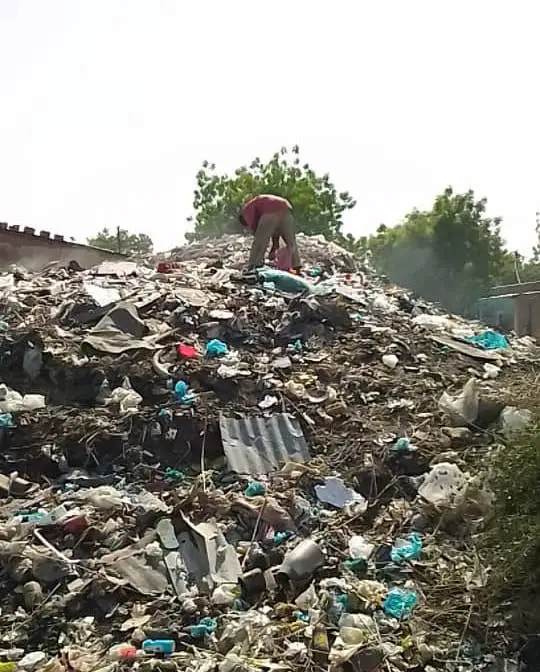Haroun, a 15-year-old from the Dembé II district, explains the collection process: “My friends and I travel through the different districts of N’Djamena, in search of used tools which will then be weighed on a scale and sold to wholesalers. 10 grams cost 500 FCFA. This job allows me to buy clothes, shoes and also food ”. Among the wholesalers are several young unemployed graduates.
This is the case of Lamana Georges, a graduate in history, who retraced her career. After completing his studies at the university, he sought to teach, filing his files everywhere in public and private schools, but without favorable outcome. He testified that one day, on his way home from a construction site, he saw a few people gathered together, approached them and realized that it was the weighing of pieces of rusty iron. He immediately joined the group the next day to embark on this activity, and today he employs four people whom he all pays at the end of the day. And it is thanks to this activity that he manages to take charge of his family.
Yaya Oumarou, a young Cameroonian met at another buyer’s site, suggests that there is money everywhere in N’Djamena. “When I go out on the streets, I find so much to do, but I’m disappointed to see young Chadians going to the trouble of going to the civil service or trying to be in an office. However, the treatment of waste is done freely, without pressure or orders from any general manager, ”he said furiously.
Waste treatment today has an important economic impact and a suggestion is made to the Ministry of Vocational Training and Small Trades, in collaboration with the public service, to set up a system to promote this area and fight against the unemployment in Toumaï country. Benin is a model in waste treatment, and Chad must follow this example.
– .


